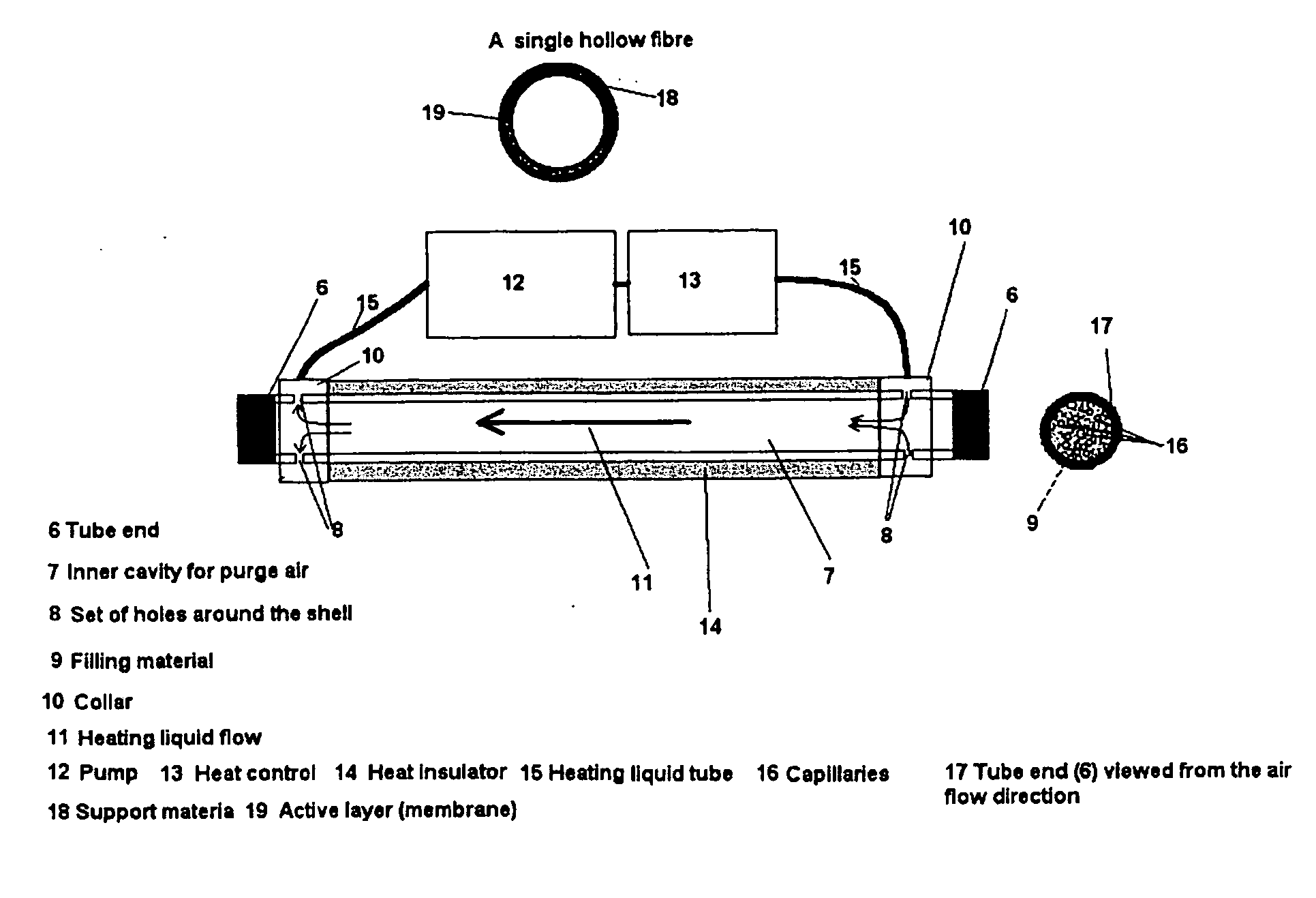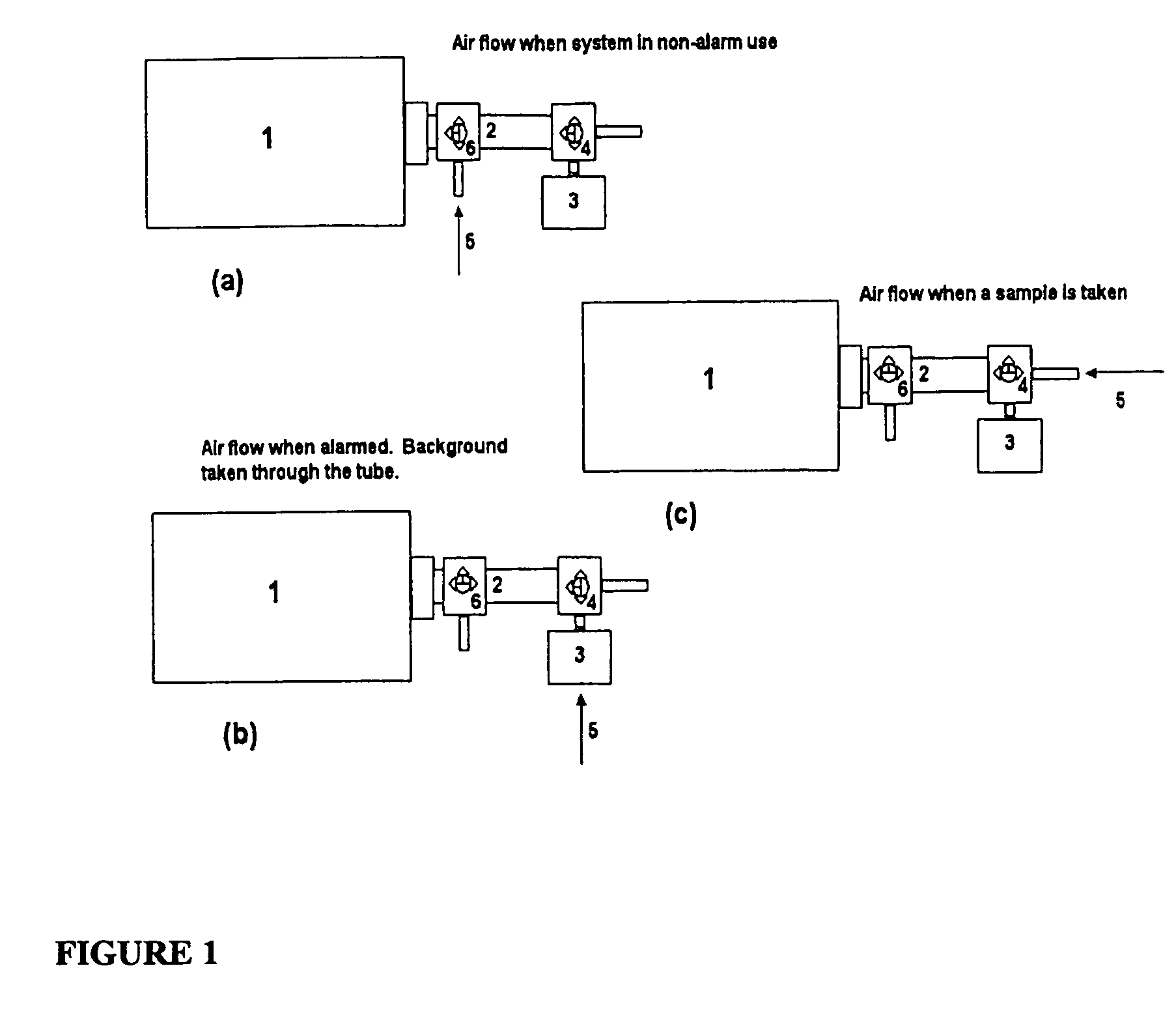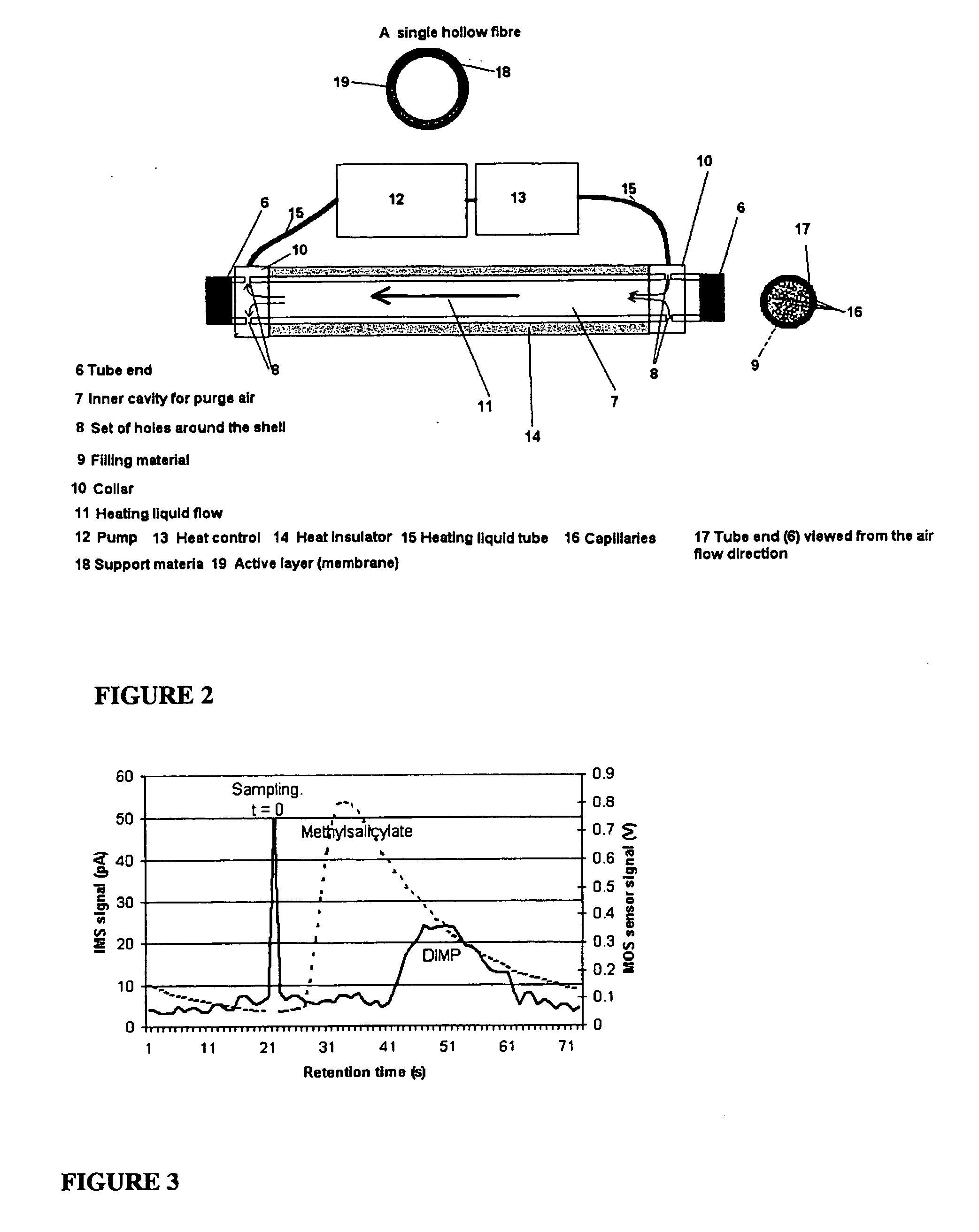Gas Chromatograph
a gas chromatograph and chromatograph technology, applied in the field of gas chromatographs, can solve the problems of reduced separation, false positive identification, and unsuitable for fast real-time monitoring, and achieve the effect of improving the chemical separation power of chemical detectors and excellently solving problems
- Summary
- Abstract
- Description
- Claims
- Application Information
AI Technical Summary
Benefits of technology
Problems solved by technology
Method used
Image
Examples
Embodiment Construction
[0033]FIG. 1 describes one preferred embodiment of using the hollow fiber capillary membrane bundle (2) as a GC column combined with a chemical detector (1). The sampling arrangement contains a valve (4), a vapor adsorbing filter (3), a gas inlet (5) and an optional additional valve (6). The position of the valve (4) determines whether the sample flows through the filter (valve switched to the position 4b) or directly (valve switched to the position 4c) to the hollow fiber bundle based multicapillary GC column (2). The moment of switching the valve from position 4b to 4c determine the t=0 for retention time.
[0034] Another preferred embodiment, also shown in FIG. 1, involves the additional valve (6) which is used to control whether the hollow fiber bundle based GC column is in use (position 6b or 6c) or not (position 6a). A faster response time is possible when a hollow fiber bundle is not used (position 6a), but a more specific identification with less cross-sensitivity is possible...
PUM
 Login to View More
Login to View More Abstract
Description
Claims
Application Information
 Login to View More
Login to View More - R&D
- Intellectual Property
- Life Sciences
- Materials
- Tech Scout
- Unparalleled Data Quality
- Higher Quality Content
- 60% Fewer Hallucinations
Browse by: Latest US Patents, China's latest patents, Technical Efficacy Thesaurus, Application Domain, Technology Topic, Popular Technical Reports.
© 2025 PatSnap. All rights reserved.Legal|Privacy policy|Modern Slavery Act Transparency Statement|Sitemap|About US| Contact US: help@patsnap.com



